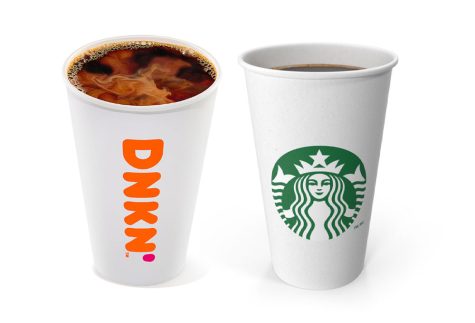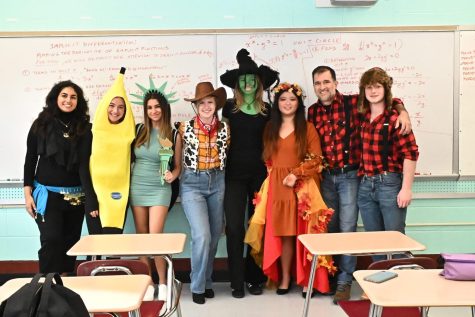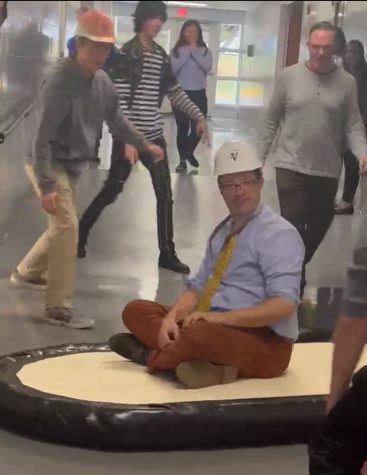What Does Global Warming Mean For Verona
“[We] assessed that … human activities had caused more than half of the observed increase in global mean surface temperature,” reads the most recent Physical Basis Assessment Report by the Intergovernmental Panel on Climate Change, released August 9th. “Human influence has warmed the climate at a rate that is unprecedented in at least the last 2000 years.”
The IPCC’s Assessment Reports offer an analysis of the most up-to-date understanding of climate change, from its causes to its effects and everything in between. This year’s, the sixth in total, contained a message more clear than ever: Everything warned about by scientists for decades now — from sea levels rising to more frequent hurricanes to the oppressive heat of last summer becoming the norm — is on the forecast for the rest of the century and beyond.
But what does the report mean for Verona?
It’s easy to get lost in the numbers and the apocalyptic headlines, to fall into an eternal doom scroll of disastrous proportions. But as reports such as these come out, it’s important to cut through the noise and evaluate what global warming signifies about our own town’s future.
The easiest effect to see is in the name: global warming. There is no doubt that the world is getting hotter, and that will be felt more as the years go on. According to the IPCC’s report, global temperatures worldwide will rise at least 1.5°C, or about 34°F. New Jersey specifically is already seeing the effects. The Environmental Protection Agency’s 2016 release “What Climate Change Means for New Jersey” noted that our state had already seen a rise of 3°F over the last one hundred years. It also predicted our climate becoming more similar to that of North Carolina, which averages winter temperatures in the 50s.
One of our earliest lessons as students of science is that the water cycle is powered by the sun. When temperatures rise, the process of the water cycle will increase, causing more precipitation — though not equally, according to the EPA, across the seasons. This means more rain and snow in the winter and spring, followed by longer, hotter, drier autumns and summers. In other words: extreme weather in the colder months; extreme drought in the warmer months.
Verona has several large bodies of water and numerous smaller rivers and streams, all of which could quickly become inundated with increased precipitation. After Hurricane Ida, members of the Verona Environmental Commission reported extreme erosion along parts of the Peckman River, which runs through Verona. The erosion comes from constant flooding caused by large storms, which damages homes and floods streets — even main avenues like Bloomfield.
And of course, waters won’t only be rising in the little rivers along the road. Another effect commonly associated with climate change is the rising of Earth’s oceans.
The IPCC says that at least three feet of sea level rise is guaranteed. Three feet may not sound like much, but it will certainly cause flooding in nearby areas. And the possibility of a rise of 10 feet — something that seemed so unrealistic not so long ago — would be completely detrimental, even for Verona, a mere 12 and a half miles from the shore. At 10 feet of sea level rise, Newark would be completely under water.
But that is a future that can be avoided. Although it isn’t necessarily easy, gloomy images of cities beneath the sea do not have to be the reality, with a little bit of work and a lot of throwing solutions at the wall and seeing what sticks.
Unfortunately, due to lackluster efforts by world leaders and a stubborn percentage of the population unwilling to accept fact and reason, scientists have concluded that the impacts of climate change are now inevitable. The IPCC has accepted that temperature rises and more extreme weather both are unavoidable. And so, the mission is no longer to stop climate change: the goal is to fight to stop the worst of climate change.
But that’s not to say the fight is over, nor should we accept it as such. There are still ways to halt the oncoming crisis. As put by Rutgers’ NJ Climate Resource Center, “Responses to climate change […] fall into two categories: adaptation and mitigation.”
Adaptation means preparing for the worst. The state government is already doing this by drafting scoping documents, which plan out how to fight issues like carbon emissions through carbon capture and protection of endangered areas. The Natural and Working Lands Strategy document is open for public discussion until February of 2022, and showing support for the legislature is a good way to combat climate change in a democratic way.
Verona’s Environmental Commission has also been working for years to promote better environmental practices and protect our town from the dangerous future ahead. Recently, they have combated flooding to come by publishing ordinances to lessen its effects, and meeting with Rep. Mikie Sherrill to discuss state funding that will help stop erosion and other consequences.
Mitigation hopes to stop the worst of the results of climate change before they can truly wreak havoc on the world. Verona has already taken several steps towards promoting mitigation. The town’s Green Business Recognition Program (similar to the NJ Sustainable Business Registry, which serves the same purpose) seeks out local businesses fighting their climate footprint and supports them by offering aid and assistance in their efforts.
New Jersey’s Global Warming Response Act aims to cut emissions 80% by 2050 — a lofty goal for some but a conservative reaction to the dire circumstances. Supporting acts like this, and voting for politicians who look to promote and forward such regulations keeps the state in line and monitors the greatest environmental criminals.
Climate change is real and its effects are rapidly approaching the entire Earth, from the faraway images of an engulfed Bangladesh to videos of the Antarctic melting from within to Verona, New Jersey. But by educating ourselves and moving forward with a mentality set upon solving the problems left for us, we can make a difference and create a world in which future generations can flourish.













